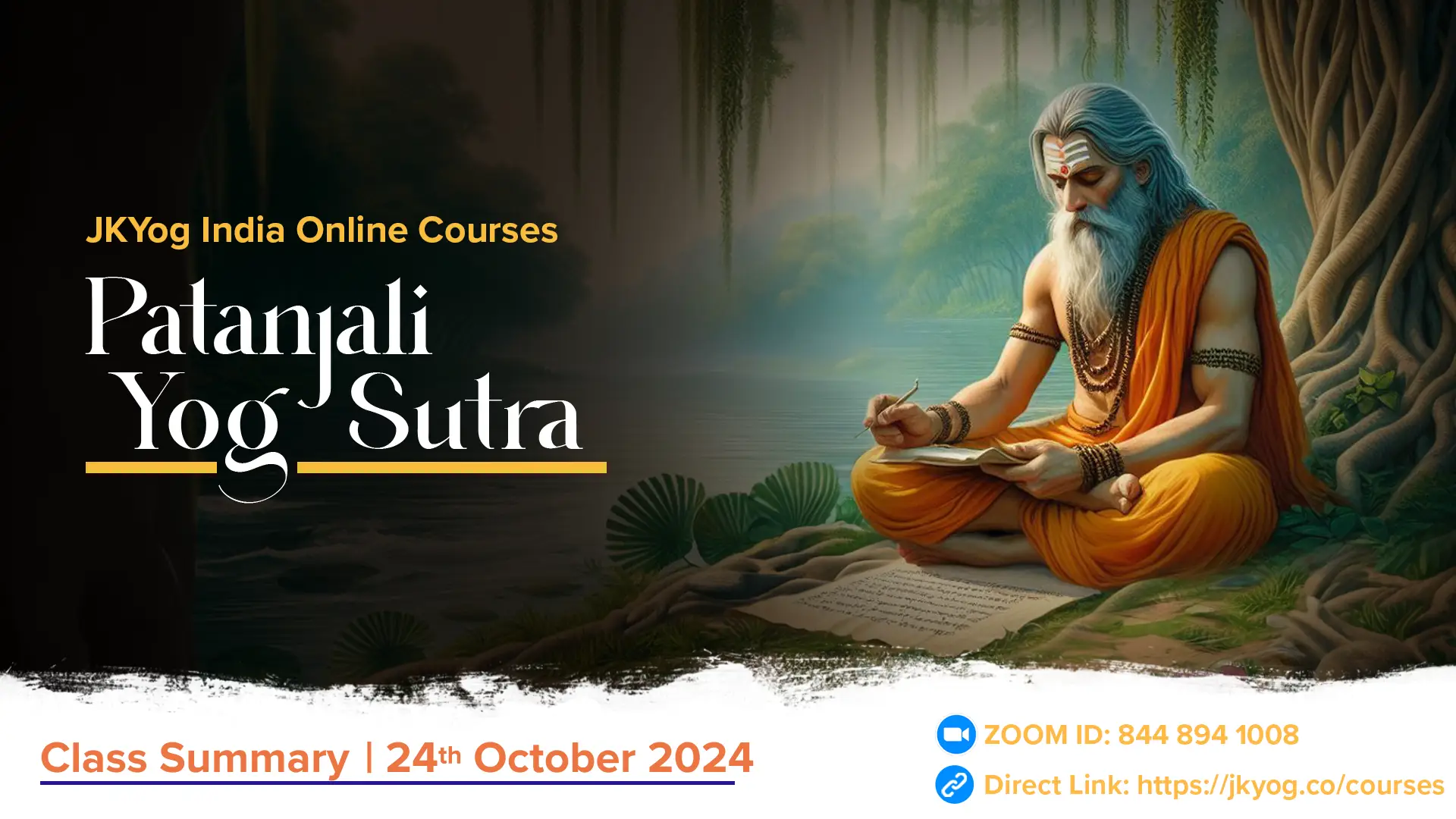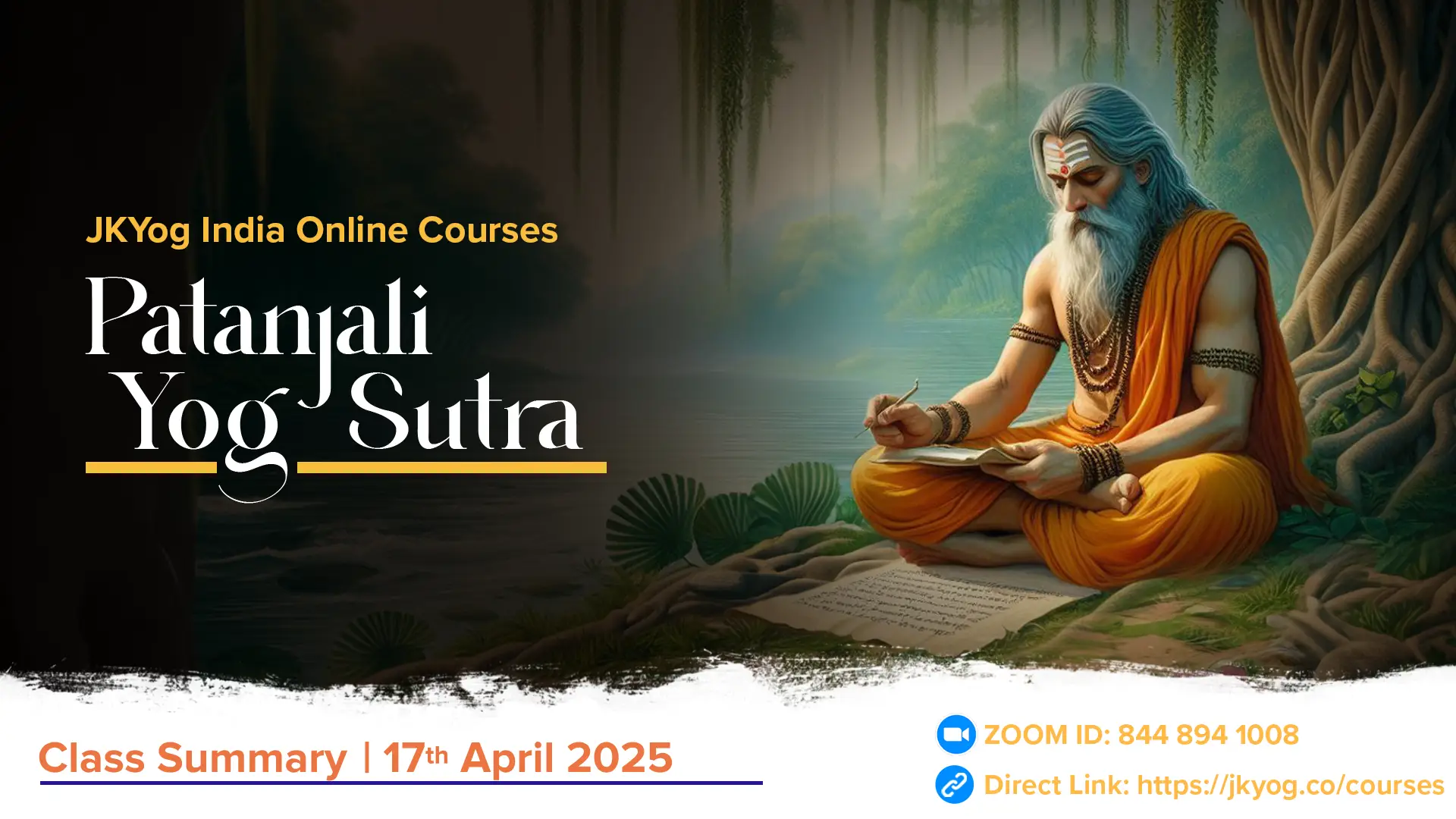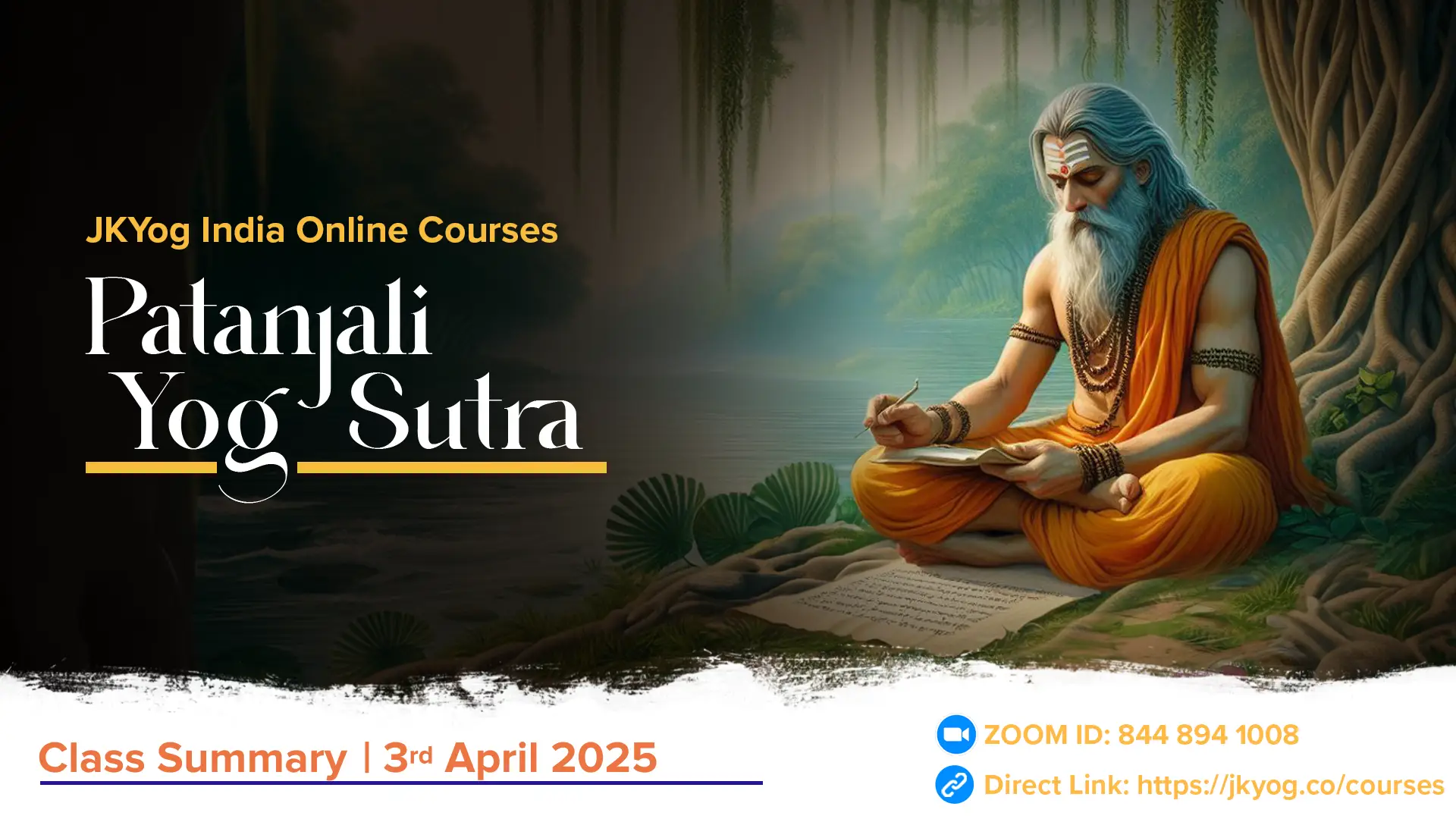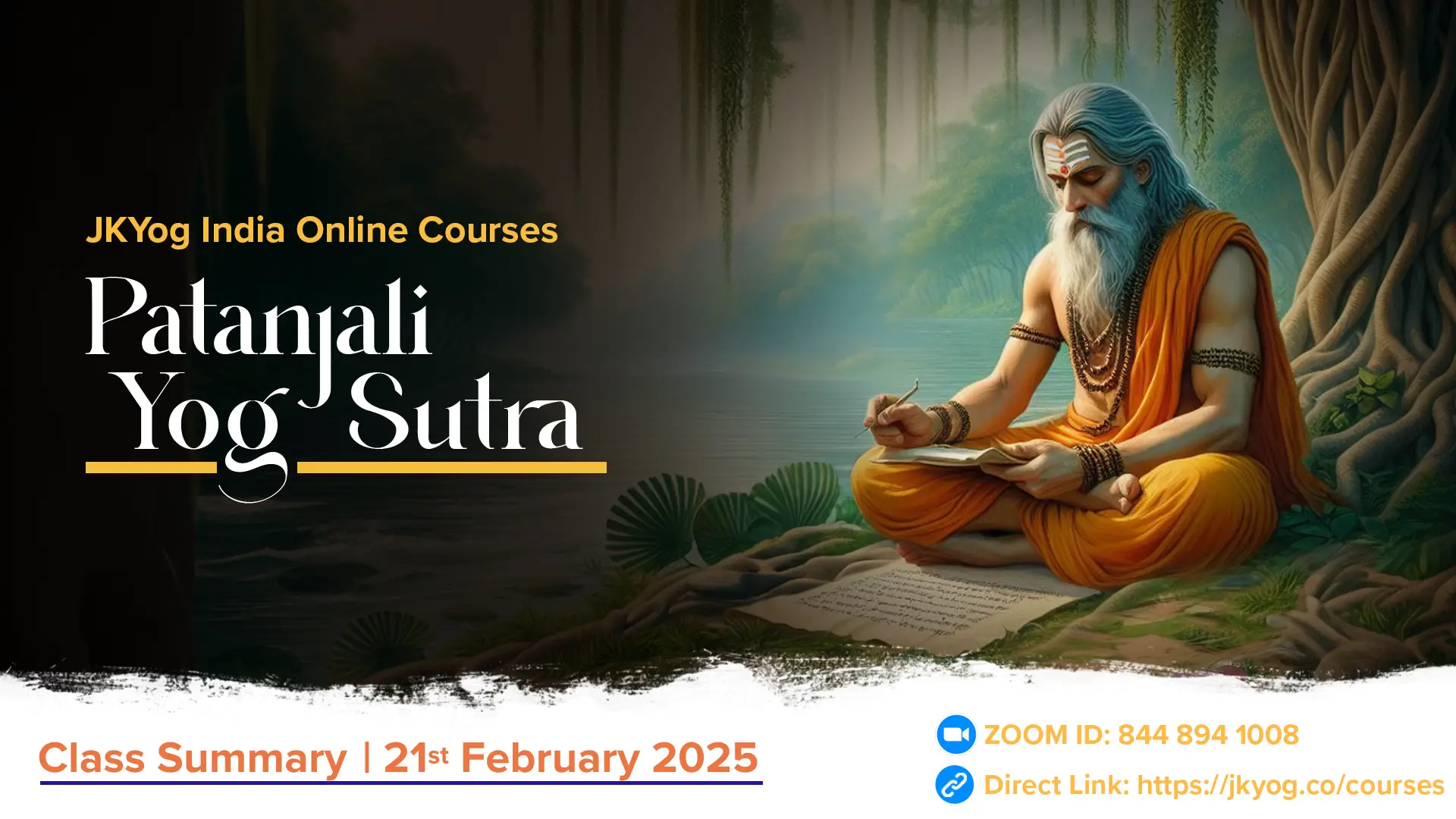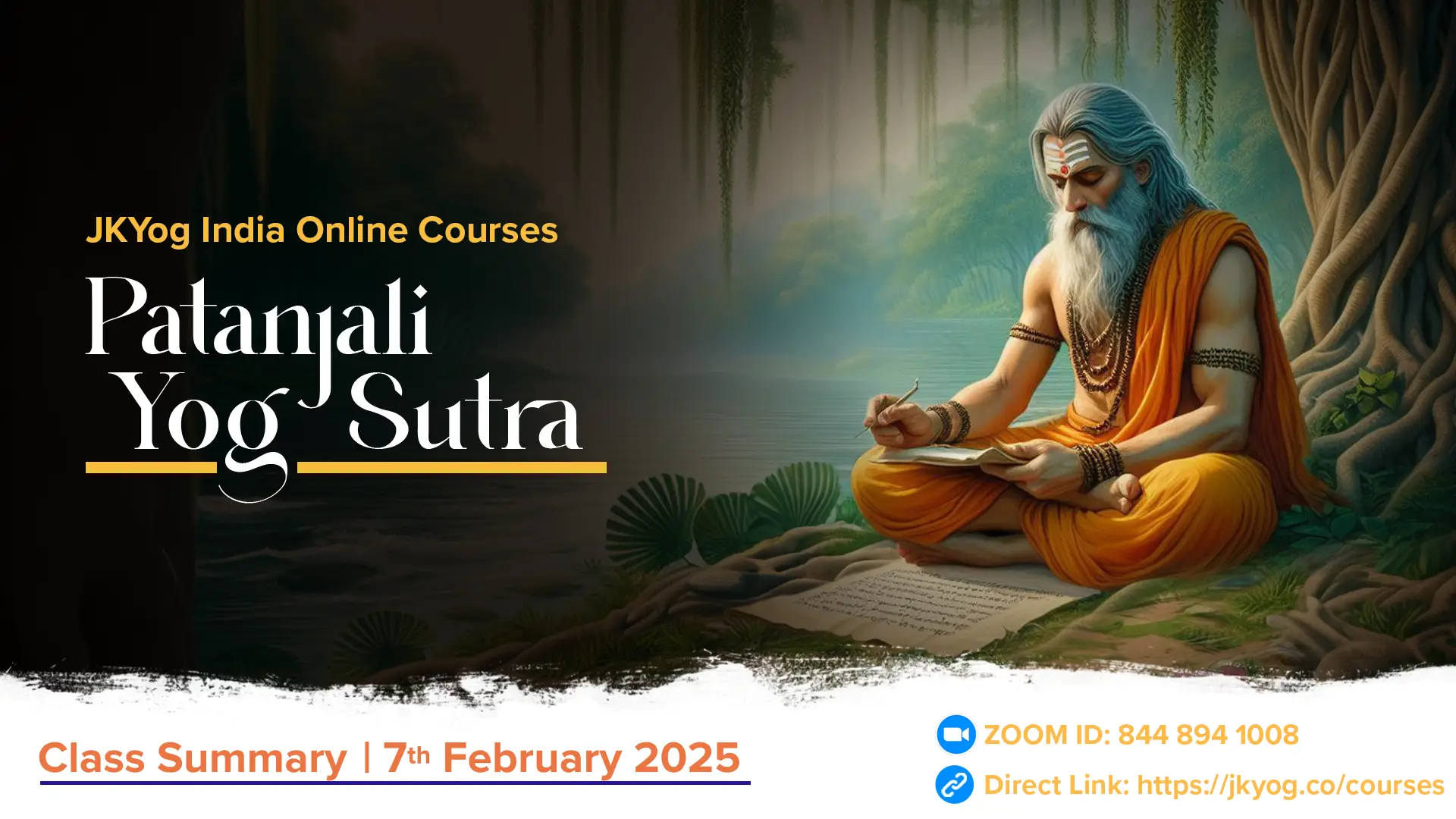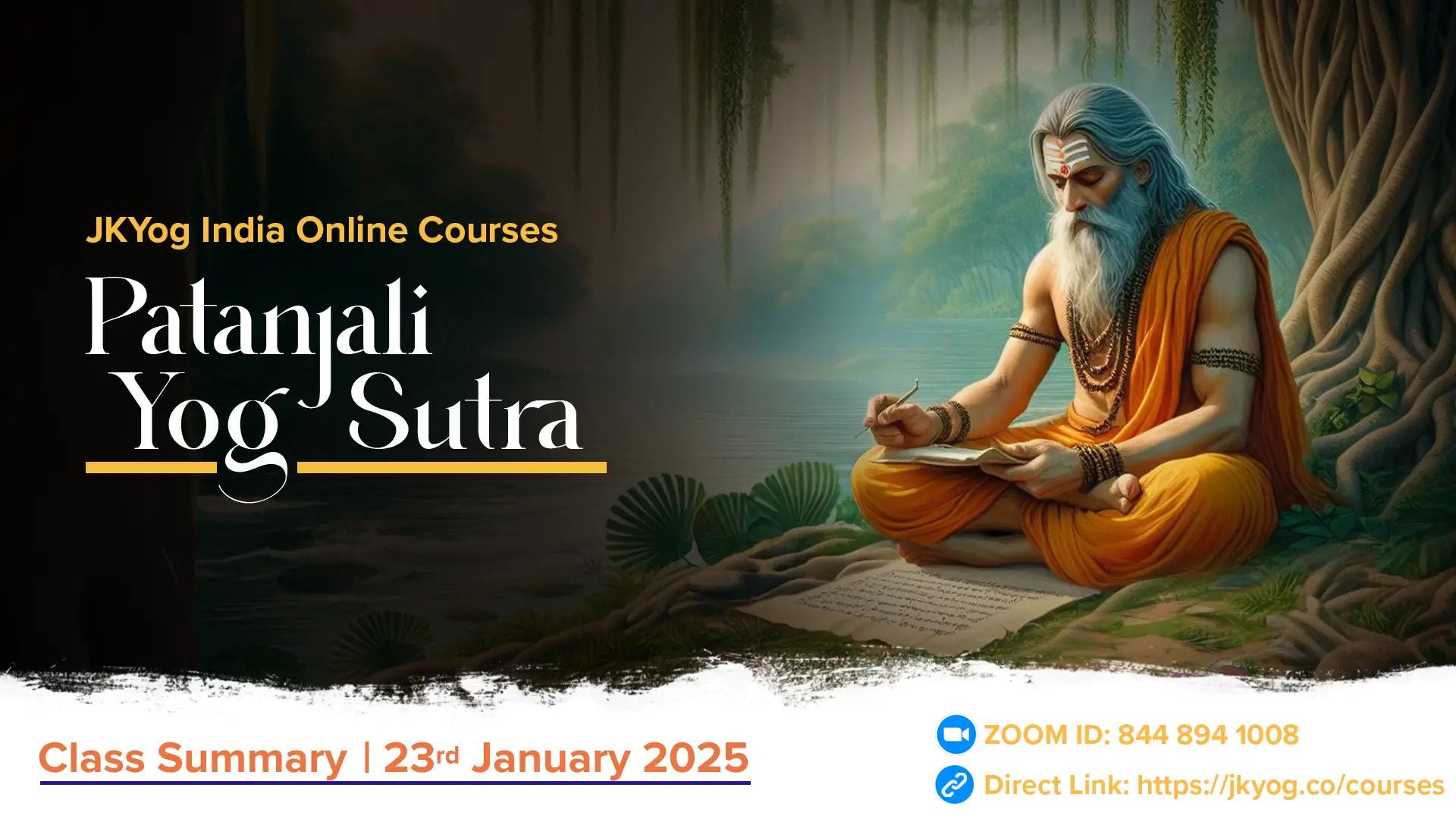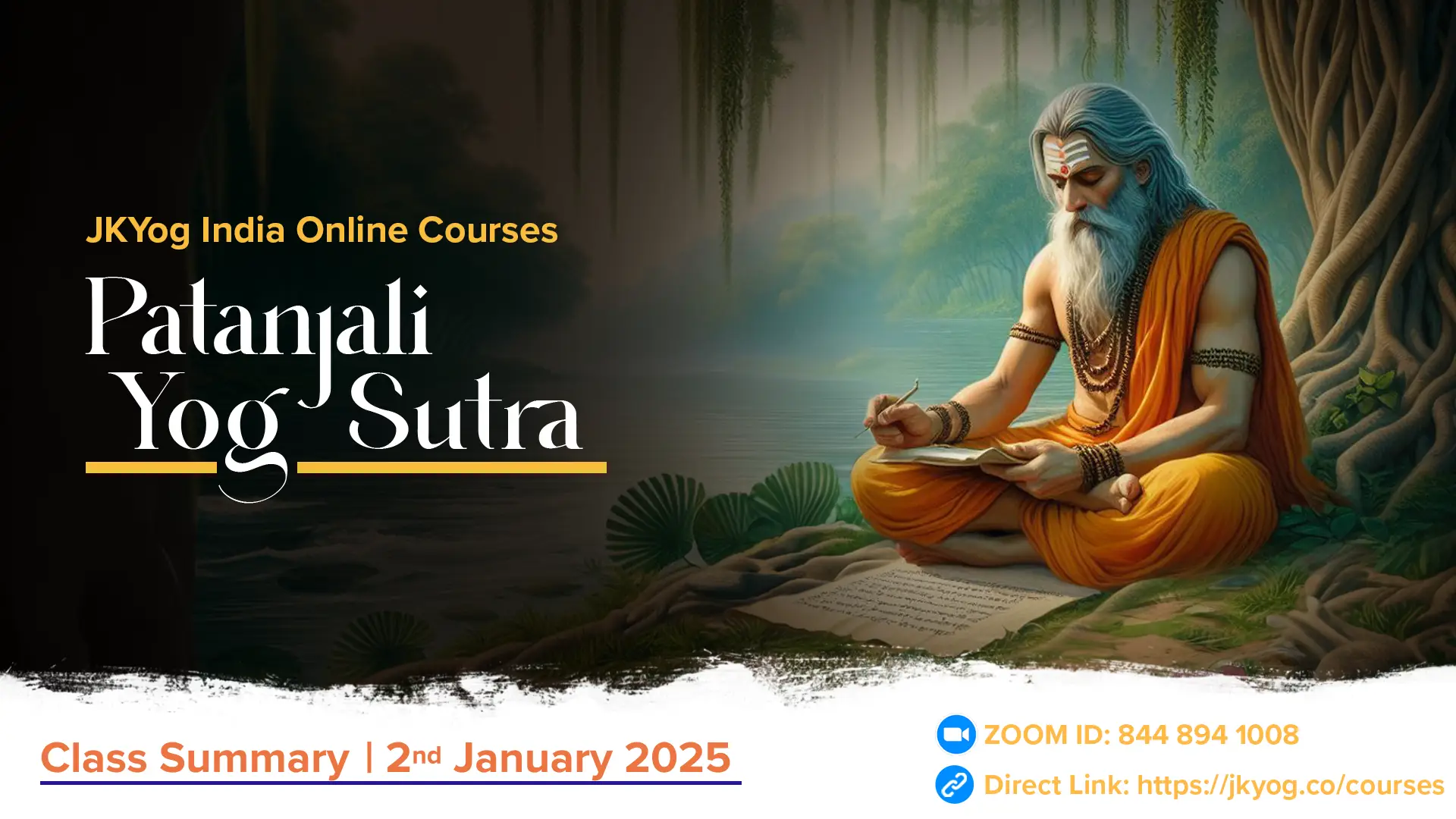ततः परमा वश्यतेन्द्रियाणाम् || 2.55 ||
tataḥ paramā vaśyatendriyāṇām || 2.55 ||
Translation:
By Pratyāhāra, occurs complete control over sense organs.
Deny the sense organs food from outside, but provide it from inside.
In the previous sūtra, we saw that pratyāhāra consists in withdrawing sense organs from the sense objects.
What is the benefit? The benefit is that we can gain complete control over the sense organs. Generally, it is the other way about. We submit ourselves to the dictates of the sense organs and suffer. All the Indian philosophers have been advising us to control the sense organs but Sage Patañjali gives the way forward.
Adopt pratyāhāra, is the advice of the sage. In other words, deny the sense organs food from the outside, but provide it from inside. Avoid junk food but provide them with quality food from the inside. Make them see inward, hear the inner voice, and so on. By no means it is easy but practice will make perfect!
Turn the sense organs towards bhakti
The easiest mode of pratyāhāra is the one where the sense organs are turned towards bhakti. Then their withdrawal from worldly objects becomes easier. If a person dwells upon the divine pastimes of God, his sense organs are automatically turned inwards and this is the best mode of pratyāhāra and the control of the sense organs.
Śrīmad Bhāgavata, 3.28.19
How does the yogin engage himself in the pastimes of God? Śrīmad Bhāgavata explains,
sthitaṁ vrajantam āsīnaṁ śayānaṁ vā guhāśayam
prekṣaṇīyehitaṁ dhyāyec chuddha-bhāvena cetasā (3.28.19)
“Thus, always merged in devotional service, the yogī visualizes God standing, moving, lying down, or sitting within him, for the pastimes of the Supreme Lord are always beautiful and attractive.”
Pratyāhāra consists in not letting the sense organs out
We saw that the sense organs have to be withdrawn from the sense objects in pratyāhāra. For example, we have to hold the tongue in check and prevent it from uttering unnecessary words. In fact, observance of silence is one of the best forms of yoga.
Then one should achieve success in the āsanas and in the prāṇāyāma. Pratyāhāra consists in not letting the sense organs out but engaging them through the mind.
The benefits of all the yogic practices including pratyāhāra are brought out beautifully in a Bhāgavata verse,
prāṇāyāmair dahed doṣān
dhāraṇābhiś ca kilbiṣān
pratyāhāreṇa saṁsargān
dhyānenānīśvarān guṇān (3.28.11)
“By practicing the process of prāṇāyāma, one can eradicate the contamination of his physiological condition, and by concentrating the mind one can become free from all sinful activities. By restraining the senses one can free himself from material association, and by meditating on the Supreme Being one can become free from the three modes of prakṛti.”
Swami Vivekananda
Swami Vivekananda’s thoughts on the nature and importance of sense control in the pursuit of Yoga are as follows:
-All pleasures of the senses or even of the mind are evanescent but within ourselves is the one true unrelated pleasure, dependent upon nothing.
- An uncultured man loves the pleasures of the senses intensely; as he becomes cultured, he begins to love intellectual pleasures, and his sense-enjoyments become less and less.
Chanakya
The ancient Indian political wizard, Cāṇakya wrote, “The wise man should restrain his senses like the crane and accomplish his purpose with due knowledge of his place, time, and ability. Purity of speech, of the mind, of the senses, and of a compassionate heart are needed by one who desires to rise to the divine platform.”
Napoleon Bonaparte was of the opinion that a man’s strength is decided by the amount of control he has over the senses, “The strong man is the one who is able to intercept at will the communication between the senses and the mind.”
Therefore let us practise Pratyāhāra and achieve mastery over the senses.
Summary: JKYog India Online Class- Patanjali Yog Sutra [English]- 24.10.2024

